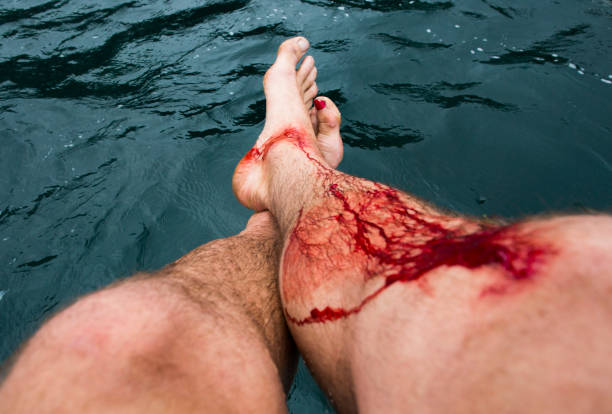The sea is a place of beauty and adventure, but it’s also an unpredictable environment where even the smallest injury can quickly escalate into a serious, life-threatening emergency. A skilled Houston maritime attorney points out that medical help is rarely just minutes away when you’re out at sea. So, what might seem like a harmless cut or bruise on land can become dangerous when complicated by exposure to the elements, limited supplies, or the salty marine environment. Whether you’re a sailor, a fisherman, or a recreational boater, knowing how to recognize and manage these “minor” injuries can be the difference between a safe voyage and a tragic turn of events.
1. Cuts and Lacerations
It might just be a scrape from a rusty railing or a sharp edge on deck, but a small cut can go downhill fast in a marine setting. Saltwater can irritate wounds, and exposure to bacteria, especially in warmer waters, increases the risk of infection.
Moreover, on ships or boats where hygiene isn’t perfect, even a simple cut can become infected with aggressive bacteria like Vibrio vulnificus, which thrives in seawater. If left untreated, this type of infection can lead to tissue death, sepsis, or even amputation. First aid should include cleaning the wound with fresh water, applying an antiseptic, and bandaging it immediately.
2. Sprains and Strains
It’s easy to underestimate a twisted ankle or pulled muscle, especially when trying to stay useful on a vessel. However, ignoring a sprain on a rocking boat could mean worsening the injury or falling again due to instability. Worse, a sprain could mask a fracture or torn ligament.
The limited ability to rest or ice an injury on board increases the chance of complications. In some cases, immobility can lead to blood clots, particularly when someone remains in one position for extended periods. If you suffer a joint injury at sea, elevate the affected area, stabilize it, and minimize movement as much as possible.
3. Sunburn and Heat Exhaustion
A bit of red skin might seem harmless after a day in the sun, but sunburn can escalate into something much more severe at sea. UV exposure intensifies with no shade, no wind to mask symptoms, and the reflective surface of the water. Severe sunburn can cause dehydration, skin infections, and an increased risk of heatstroke.
Heat exhaustion is particularly dangerous aboard vessels with little ventilation or in tropical climates. Symptoms include nausea, dizziness, and confusion, and if untreated, it can progress to heatstroke, which is a medical emergency. Hydration, protective clothing, and scheduled shade breaks are vital.
4. Insect or Marine Animal Bites and Stings
An irritating jellyfish sting or a bug bite might not seem like much, but allergic reactions can be deadly when you’re miles from the nearest ER. Some marine stings can cause severe swelling, breathing difficulties, or even cardiac arrest. Bites from unfamiliar sea creatures may introduce toxins or bacteria into the body.
Even if the initial reaction is mild, the risk of delayed infection or allergic response remains. If allergies are known, always carry an epinephrine auto-injector. Treat all bites with caution, monitoring closely for signs of infection or systemic reaction.
5. Head Injuries from Slips or Falls
Slippery decks, sudden waves, or swinging equipment make falls a common hazard at sea. A minor bump on the head may not raise concern at first, especially if there’s no visible bleeding. However, any head injury has the potential to lead to a concussion, internal bleeding, or swelling.
Symptoms such as confusion, dizziness, or nausea can be difficult to distinguish from motion sickness, which means serious signs may go unnoticed. Without access to imaging or medical evaluation, it’s best to treat all head injuries as potentially serious and seek medical help as soon as possible.
Conclusion
When you’re on the water, there’s no room for complacency. Even the most minor-looking injury can become serious if not handled properly and promptly. Preparedness, vigilance, and basic first aid knowledge are essential on every trip, whether it’s a short coastal cruise or a long-haul voyage. However, beyond medical attention, it’s also crucial to understand your rights if you’re injured at sea, especially if negligence or unsafe working conditions contributed to the incident. In such cases, speaking with a Houston maritime attorney can help you navigate the complex legal waters of maritime law and ensure you receive the compensation or support you deserve. Don’t wait until a minor issue becomes major—onboard or in the courtroom.

